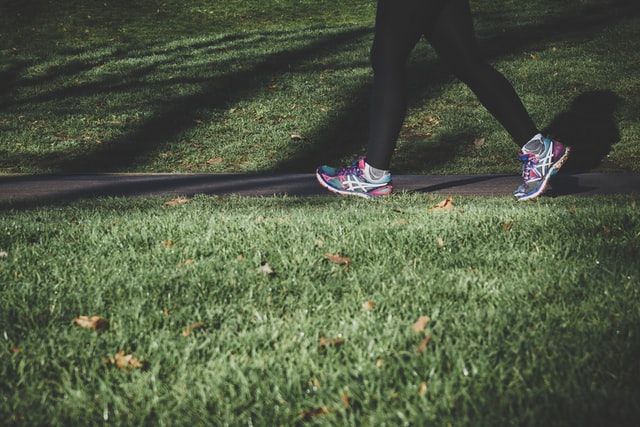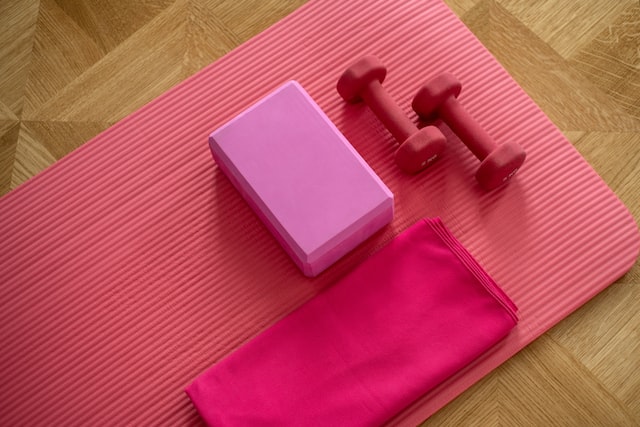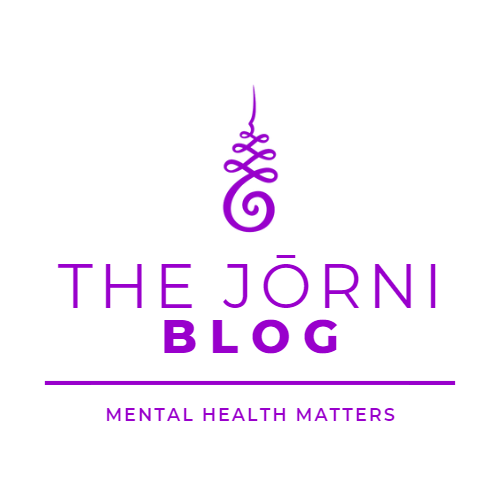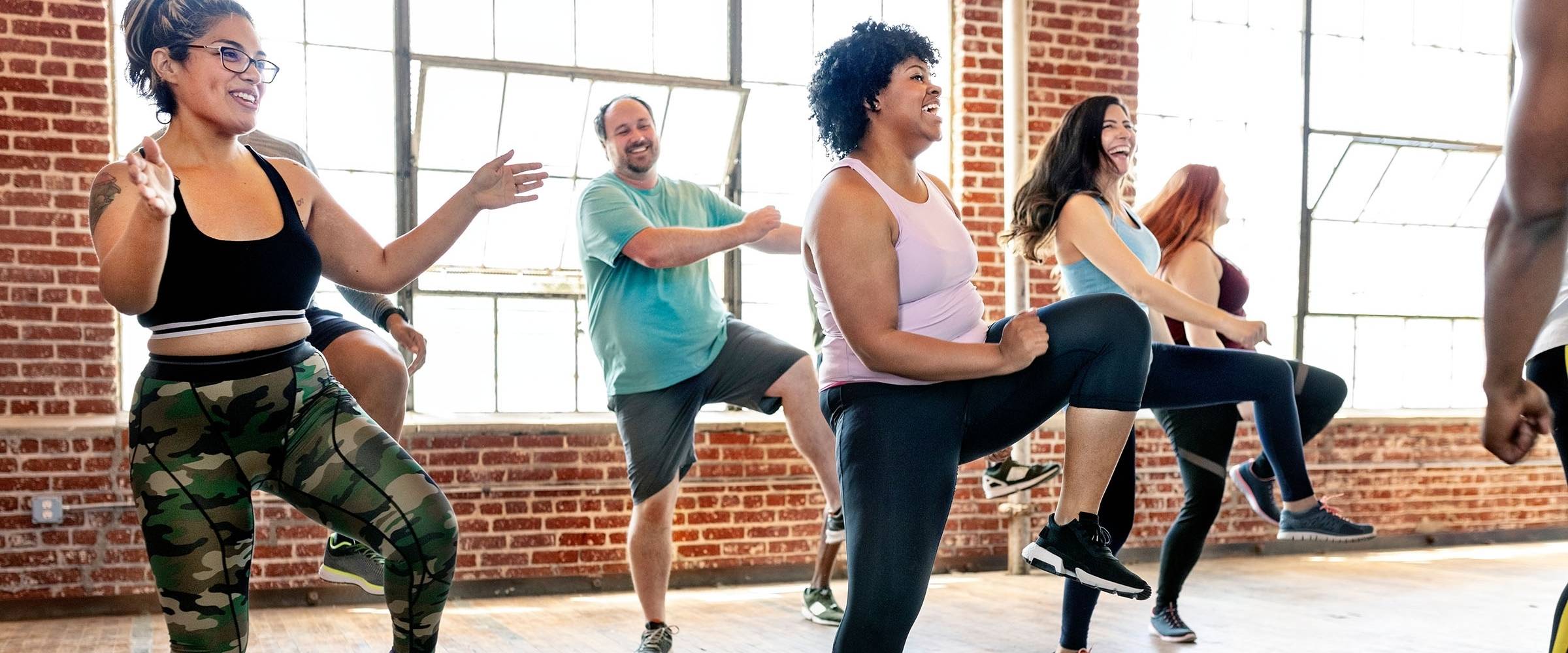Fitness for Feeling Great
The Catch 22 of Fitness and Mental Health
I am a little bit tired of hearing the advice that I should just exercise to feel better. And yet I’m sure most people struggling with mental health issues have heard it before. It may have been from a well-meaning family member. Or from a doctor or therapist. And that is not to say that the advice is wrong. I am simply tired of people thinking it is that easy.
One of the issues with depression and anxiety is that sometimes exercise is the last thing you think about. The very thought of having to move vigorously may be too much. Going to the gym or taking part in a group exercise could be too stressful for someone suffering from anxiety.
If it were that simple to just exercise and feel better, I would have done that a long time ago.
On the podcast, I recently connected with Kiki Tyler. She is a wellness enthusiast and an energy healer. Experiencing her own mental health journey, she understands what it means to explore fitness while juggling mental health. She combines fitness with sound healing, for a unique holistic healing approach that supports exercise and healing.
“If you don't make time for exercise, you'll probably have to make time for illness.”
- Robin Sharma
Something I kept running into was the fact that I was too tired to exercise. I was mentally and emotionally so drained that I could not see myself even going for a walk. This caused weight gain and even more exhaustion. So, I was caught in a perpetual cycle of just not wanting to exercise. Fitness was too tiring. Add some chronic pain to the mix and you have the recipe for a perfect storm.
Fitness
There is no doubt that a relationship exists between fitness, or exercise, and mental health. A whole scientific explanation exists for this relationship. Exercise affects depression, anxiety, and stress in a positive way because it triggers physiological and biochemical mechanisms (Mikkelsen et al., 2017).
Exercise causes your body to do several things that make you feel good. For one, there is the release of endorphins, which makes you feel happy. You can also get endorphins through eating foods that make you feel good, like chocolate. Or by getting a massage, and many other ways. Fitness gives your body that boost of endorphins, which can improve your mood, reduce stress, and even help with pain.

Your body also produces heat during exercise, which can help put you in a state of relaxation. In addition, neurotransmitters are released, which help improve depression, anxiety, and stress. There are few more things that happen also, but the gist of it is that it all goes toward improving mental health.
In addition, there is an immune response that happens during fitness, which can produce an anti-inflammatory response. This helps with your immune system and it can also help relieve pain and improve your overall physical health. Another important thing that happens on the immune side is that it strengthens vagal tone. Although the vagus nerve should have a whole blog post on its own, suffice it to say that when vagal tone weakens, it can negatively impact mental and physical health.
Baby Steps in Fitness
Now, there are some negative sides to fitness that I should also mention. Because these are sometimes the reason people have a hard time starting or maintaining exercise. If you do too much too soon, exercise can cause an inflammatory state in the body. This basically means you have overworked your body. Instead of producing all of the positive mental health benefits, you may feel sore, exhausted, have body aches, or even get an upper respiratory tract infection.
And since fitness also serves to distract us from depression and anxiety, this distraction has a negative side as well. If exercise becomes a way to control body image, fitness can turn into something very negative. Fitness may become an obsession to lose weight, for example. This could lead to or exacerbate eating disorders and it could cause injuries from overworking your body.

That’s why Kiki Tyler recommends starting with baby steps and really celebrating those small wins you have. You don’t need to run a marathon to feel proud. A simple walk for 10 minutes is a great start. Or one of her short micro exercises that are just under 10 minutes long. If you are like me and exercising was the last thing on my mind, you can even start out with some breathing or chair exercises.
The point is that once you start moving, your body will start producing endorphins and you will likely start to feel better. It’s the motivation bit that is usually the most difficult part. And that is why working with Kiki online is such a great idea. You can start exercising from the comfort of your own home, but you will have someone to motivate you to get started.
Sound Healing
And here is the twist. You can also combine sound healing with fitness. Each one is a great holistic healing tool on its own. But combined, the two work together to support your mental health journey in an optimal way. Once you start moving through fitness and exercise, you can use sound healing to relax you after your walk or workout.
Sound healing works beautifully to help unwind you after activity. It can also help with muscle pains you may have. And it can help relieve tension and anxiety as well. Whereas exercise is the active part of supporting your wellbeing, sound healing can be more of a calm or passive part. You can play the bowls or instruments yourself, but you can also listen to someone else playing them for deeper relaxation.

More and more research is being done on sound healing and the results are very promising. Sound healing has shown to lower tension and depression scores after a sound bath (Goldsby et al., 2022). Sound healing has also shown a decrease in pain scores. This could be helpful if you are struggling with chronic pain and exercise is difficult. Potentially, a sound healing session after gentle exercise could provide some relief.
If you are working on specific things, I would definitely recommend working with a certified sound healing practitioner. They can guide you through a session tailored to your own needs. If you are just looking to relax and unwind, you can even listen to a sound bath online. But, I have to say that playing the bowls and feeling their amazing vibration move through you is an incredible experience. The same with gongs and other instruments. So, if you can partake in a live sound bath, I would absolutely recommend it.
The Takeaway
Fitness and exercise can be a difficult topic when it comes to mental health. Not everyone is ready to move and sometimes it can even worsen your physical state. It is important to work with someone experienced in fitness for mental health, so you can have the best fitness journey for your unique situation.
Especially if you are experiencing chronic pain, exercise can be very hard. The pain may prevent you from even getting started. I did not exercise for years because of the pain I would experience and eventually just gave up altogether - to the detriment of my physical and mental health. I started working with an amazing personal trainer and now, I look at fitness in a completely different way. The difference of working with someone who understands mental health struggles and chronic pain is incredible.

Just like with anything in your mental health journey, fitness needs to be centered around you and your needs.
Don’t be afraid to ditch the gym, if you are scared to go there or feel uncomfortable or anxious. There are many other ways you can start your fitness journey and working with someone online could be a great option as well. You can stay in the comfort of your own home and even turn off your camera. The important thing is to start somewhere and take baby steps.
It is amazing the difference that regular exercise makes for me. My lower back pain has resolved. The exhaustion is starting to clear. And I am feeling more mentally and emotionally balanced. That’s not to mention the weight loss, which improved my chronic pain, my skin, and my menopause symptoms.
So, make it a point to find your start to taking care of your body and mind. Whatever works for you to dip your toe into fitness will be a great start!
Sources
Goldsby, T. L., Goldsby, M. E., McWalters, M., & Mills, P. J. (2022). Sound healing: mood, emotional, and spiritual well-being interrelationships. Religions, 13(2), 123. https://doi.org/10.3390/rel13020123
Mikkelsen, K., Stojanovska, L., Polenakovic, M., Bosevski, M., & Apostolopoulos, V. (2017). Exercise and mental health. Maturitas, 106, 48–56. https://doi.org/10.1016/j.maturitas.2017.09.003
https://thejornipodcast.com/episode-7-fitness-and-mental-health-with-kiki-tyler

